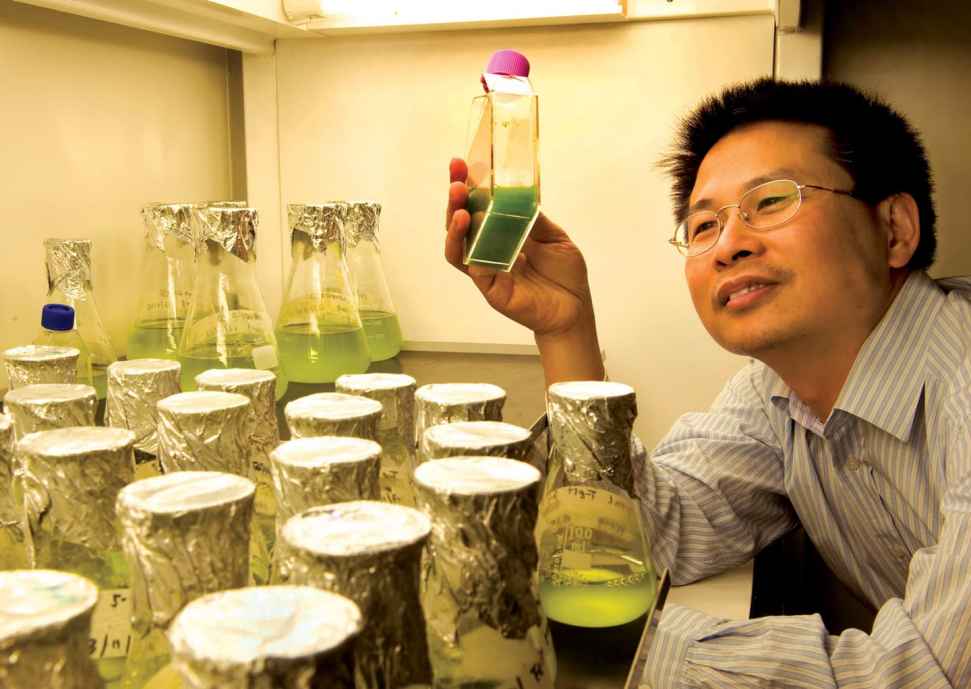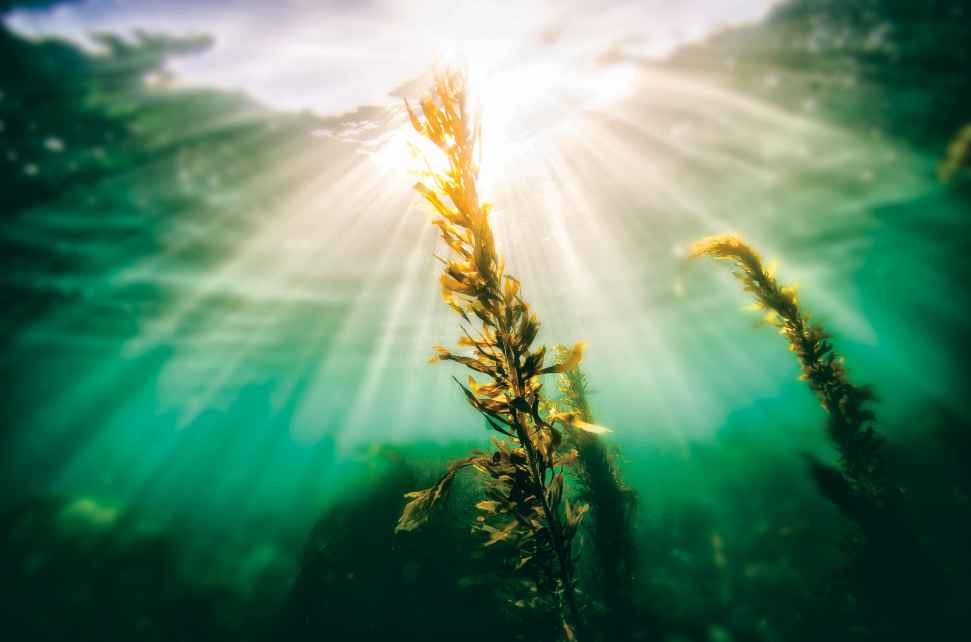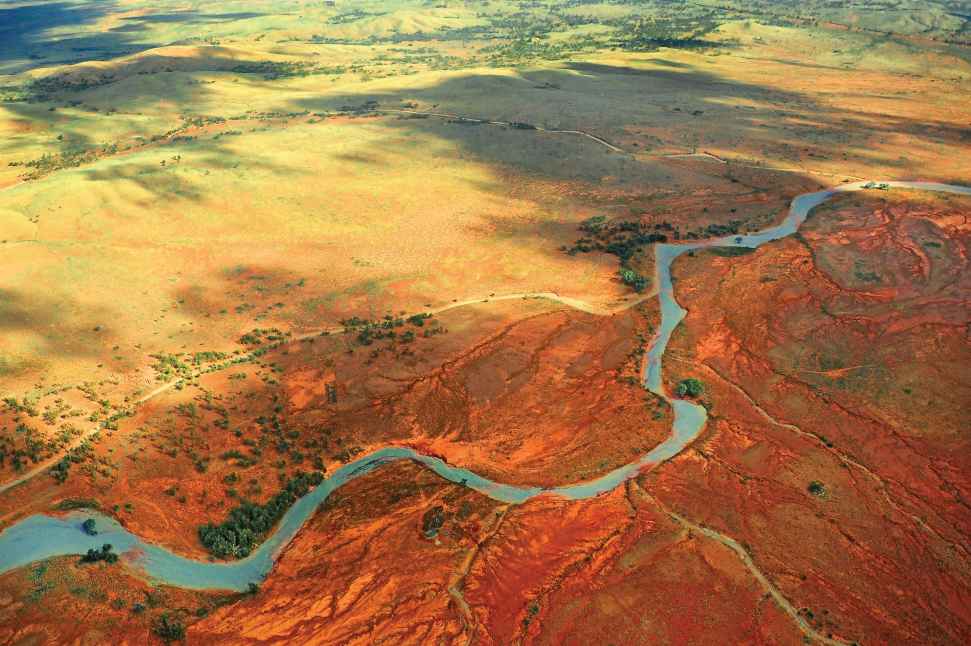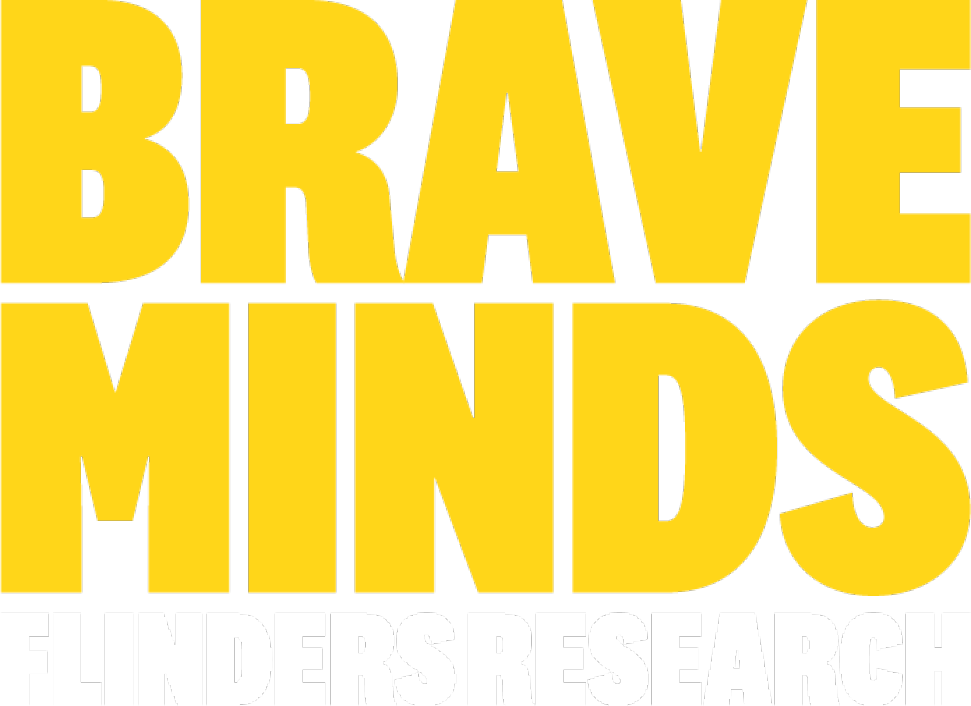Jane Nicholls
MARINE BIOTECHNOLOGY:
THE NEXT WAVE FOR AUSTRALIA
—
Meet the researcher striving to take our hidden marine potential global.
When it comes to Australia’s natural riches, we tend to think of landbound resources, such as coal and iron. But for Professor Wei Zhang, there’s gold submerged just beyond our shorelines – the kind that could spur a burgeoning new industry.
Founder and Director of the Flinders University Centre for Marine Bioproducts Development (CMBD), Professor Zhang is focused on what lies in Australia’s Exclusive Economic Zone – an area spanning some 10 million square kilometres of marine territory.
Since its launch in 2007, the CMBD has been investigating sustainable processing and commercialisation methods for South Australian microalgae, sea sponges, fish, rock lobsters, sea cucumbers and seaweed. The idea is to transform these marine bioresources into high-value products for human nutrition, pharmaceuticals and medical materials.
“Australia has unique marine biological diversity,” he says. “Nearly 70% of our marine biota is unique to our region, and marine biotechnology builds on this natural asset.”
The international market is already hungry for marine bioproducts, ranging from soil fertilisers and animal feeds to nutritional supplements and preventative medicines. But in 2014, when the global industry was valued at US$176 billion, Australia represented just US$200 million of that.
The good news is that experts predict that Australia’s pristine environment and strict regulatory practices put it in a prime position to become a major global player in the years to come.

Prof WEI ZHANG, a Biochemical Engineer since 1989, has strong research and teaching expertise in bioprocess engineering, marine bioproducts engineering, and industrial and pharmaceutical biotechnology including, marine bioprocessing, molecular and integrated bioprocessing, microalgal biofuels and biorefinery, bioproduct discovery and development, membrane bioreactor, fermentation, plant and animal cell culture
“The good news is that experts predict that Australia’s pristine environment and strict regulatory practices put it in a prime position to become a major global player in the years to come.“
The CMBD is developing clean, sustainable technologies for existing operations, while also inventing advanced processing technologies and products for new industries. Professor Zhang has a laser focus on immediate business development, and ambitious plans for “Australia’s future dream” of establishing new job-creating industries for marine bioproducts.
“South Australia has almost 15% of the world’s recorded diversity for red and brown seaweeds, which are the most commercially valuable species. But we don’t have endless quantities to use for commercial production,” he explains. “It’s important to develop technology that’s sustainable and conserves the resources and diversity.”
Those priorities are at the heart of the CMBD’s approach, as well as pursuing energy-efficient and water-saving methods.
“When we work with industry partners, we start with improvements to their technology to minimise waste, improve efficiencies and justify that initial business investment,” says Professor Zhang. “Once they taste the sweets of what one of our technologies can offer, then they can move onto the next!”
The CMDB is supported by industry, State Government, Australian Research Council (ARC) and Cooperative Research Centres (CRC) funding, and has already seen the commercialisation of some key projects. Many more are in the pipeline.
One of these, called Microwave Intensified Technology, has transformed the production of seaweed fertiliser by Australian Kelp Products (AKP), a South Australian seaweed products company. A process that once took up to three months now takes six to nine hours, dramatically increasing productivity while reducing use of water and chemicals.
This means the factory space required is just 1% of what it was before the technology was introduced, says Professor Zhang.

That research came through the Advanced Macroalgae Biotechnology Joint Laboratory, established at Flinders in 2013 as a partnership between the CMBD and China’s Gather Great Ocean Group – one of the world’s largest seaweed processors.
Another of Professor Zhang’s concepts is a calcium supplement, to be developed in a collaboration with the CSIRO. “One in six children in Australia are lactose-intolerant and cannot get sufficient calcium from dairy products,” he says.
It’s important to consume the required nutrients, but it’s difficult to get children to eat things they don’t like, he adds. “We needed to make it tasty and edible, rather than via capsules or tablets, because they hate them.”
The Flinders team combined extracts from brown seaweed and minerals from lobster shells – a seafood-processing waste product – to create Calci-boom, a supplement that can be made into a lunchbox product, such as a jelly or drink. After success in the CSIRO’s ON Accelerate program, Calci-boom is now under commercial development.
And that’s just the tip of the marine biotechnology iceberg.
Driven by the global market demand for clean, green and effective marine bioproducts, Flinders is now leading a bid to form the first industry-led, national R&D platform for this emerging industry sector, called the Marine Bioproducts and Biotechnology Cooperative Research Centre (MBB-CRC).
The MBB-CRC already has 37 industry and eight university partners on board. Professor Zhang says a CRC is essential to realising Australia’s immense marine wealth and boosting its competitiveness internationally.
“The CRC will be a platform to link partners across the value and supply chain, give Australia international influence and connections, and support the growth of our marine biotechnology and bioproducts industry to contribute to what we’re dreaming of: an Australian blue economy worth $100 billion by 2025.”
Bring on the new Australian gold rush.
Donate to research
Through research, and research-led teaching, we build and develop the knowledge and capabilities that improve lives and enhance society as a whole. Your gift can help support our projects, which are finding practical solutions to real-world challenges and create hope for a better future.
![]()
Sturt Rd, Bedford Park
South Australia 5042
South Australia | Northern Territory
Global | Online






